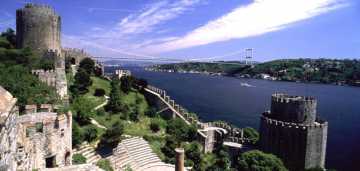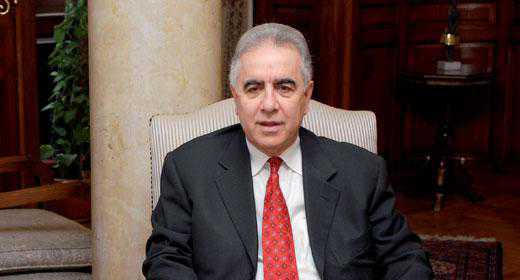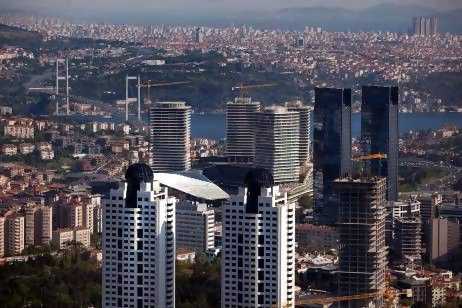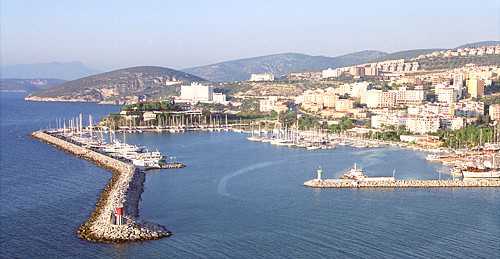Property booms aren’t a new thing. But between 2000 and 2008 we can honestly say that we saw the first overseas property boom, a boom in people buying foreign property. If you were to pick an epicentre for the explosion Eastern Europe would definitely make the short-list. You would have to have been living under a stone between 2000 and 2008 to have missed the massive explosion of the Eastern European emerging markets onto the overseas property scene.
This was driven by EU accession, as in 2004 Czech Republic, Estonia, Hungary, Latvia, Lithuania, Poland, Slovakia, and Slovenia all acceded to the EU and onto the radars of property investors, followed by Bulgaria and Romania in 2007. But it was also fuelled by the mass-adoption of the internet, which made the meteoric emergence of these markets global news to potential property buyers. It quickly became common-knowledge that investing in emerging market property was the in-thing, as at such low prices bricks-and-mortar investments couldn’t possibly fail.
In 2004 the Estonian housing market was booming, not the first housing market boom in the world, but for the first time casual armchair investors could watch it unfold.
Brits had been buying overseas property for decades, but it was retirement and lifestyle choices as they bought far-from-cheap villas and luxury properties on the Mediterranean coast. Indeed, for years Brits’ idea of overseas property investment was buying a Spanish villa as a holiday home and hoping that it would also turn out to be a good investment. But as these new countries came into the EU Brits were exposed to property at incredibly low prices and with a strong potential for growth as EU accession boosted already growing economies.
Brits and others from around the world made big bucks investing in emerging market property, especially in Czech Republic, Estonia, Poland, and to a lesser extent, Lithuania. In these countries investors often saw capital appreciation of up to and over 30% per year. The same happened when Bulgaria and Romania joined in 2007, in the former more than the latter because of its popular ski resorts.
Turkey isn’t looking like acceding to the EU any time soon and if its property prices were growing at anywhere near 30% per annum in the current climate people would be running for the hills and I certainly wouldn’t be writing about it in an article like this. But the world has changed. For a start EU accession could be called a curse rather than a blessing in the EU’s current state, and secondly investors have a totally different outlook on what makes a good investment. During the boom investors were chasing big capital growth, but since the crash slow and steady wins the race. For that reason, along with a whole host of related reasons Turkey looks like being the next Eastern Europe.
The next Estonia. Estonia wasn’t a dull market that was lucky to get into the EU, which caused a housing boom. Like the others Estonia got into the EU because it was a strong and vibrant emerging market full of potential, and its housing market was booming. In fact, according to the Global Property Guide the Estonian housing market was in a constant boom between 2000 and 2007.
Before the financial crisis the Turkish economy had been growing by around 6% per annum since the AK Party took power in 2002, and its property market was doing OK with lifestyle buyers, but since the crash it has burst onto the scene as one of the hottest property markets in the world — in this respect the crisis has done Turkey a favour.
The AK Party was elected on a wave of discontent as Turkey endured the latest in a long line of recessions in the boom-bust status qua. Military involvement in government was seen as a big part of the problem, and the AK Party promised to stop all that. As well as this they did things like increasing foreign exchange reserves and putting an office of the central bank in all major bank branches. Thanks to these steps the Turkish economy endured only a short recession during the financial crisis and the banking system not only stayed intact but emerged as one of the best in the smouldering-ash-world that remained.
Since the recession ended in Q4 2009 it has grown in double digits year on year in several quarters, seen the second fastest growth in the world once, become the fastest growing economy in the EU in 2011, and generally one of the most vibrant and promising emerging markets in the world. This puts it on a par with any of the Eastern European markets as they headed into their property booms. However, they could boast potential 30% capital growth.
Since emerging strongly from the financial crisis Turkish property prices have been growing at an average of 10% per year for the last 2 years according to the REIDIN/GYODER/Garanti Bank index. Another reason why the banking system not only survived but endured and prospered is because of its small mortgage market and therefore small exposure to the sub-prime whoopsie. Since the crash the Turkish mortgage market has been growing at 20-25 per cent per year according to central bank data.
Today’s property investor doesn’t want scintillating growth, but combine the metrics above with Turkey’s strong employment and population growth, and you have a recipe investors can really sink their teeth into.
Even holiday home investors aren’t losing out. During the Eastern Europe boom private casual foreign investors were almost all holiday home investors; buying holiday homes with the potential to make an income from renting them out to like-minded holidaymakers. Turkish tourism went from 9.75 million in 1998 to 26.3 million in 2008 and continued to grow even during the financial crisis, taking visitor numbers to 31.4 million in 2011. So there is plenty of growing demand in holiday hotspots for holiday home investors to find great opportunities as well.
The AK Party has also given Turkey one thing surpassing any of the Eastern European markets of the past, economic stability. The party has paid down public debt from 74% of GDP in 2002 to just over 30% and IMF debt from $23.5 billion to just $5.5 billion as of 2011 according to Erdogan. Thanks to this and the party’s proven record of fiscal responsibility the Turkish economy is also one of the most stable in the world.
Estonia and the Czech Republic were two incredibly popular markets from 2000-2005, and then you had Bulgaria and Ukraine from 2002-2008. In years to come Turkey will be called one of the hottest markets in the world between 2009 and 2018. What is it that they say about early bird and worm… It’s not too late for Turkey if you catch my drift.
Written by Liam Bailey on behalf of Turkey property developer Wise Move Homes, the developer behind the nearing-completion 4-phaseAltinkum property development Apollon Holiday Village.






